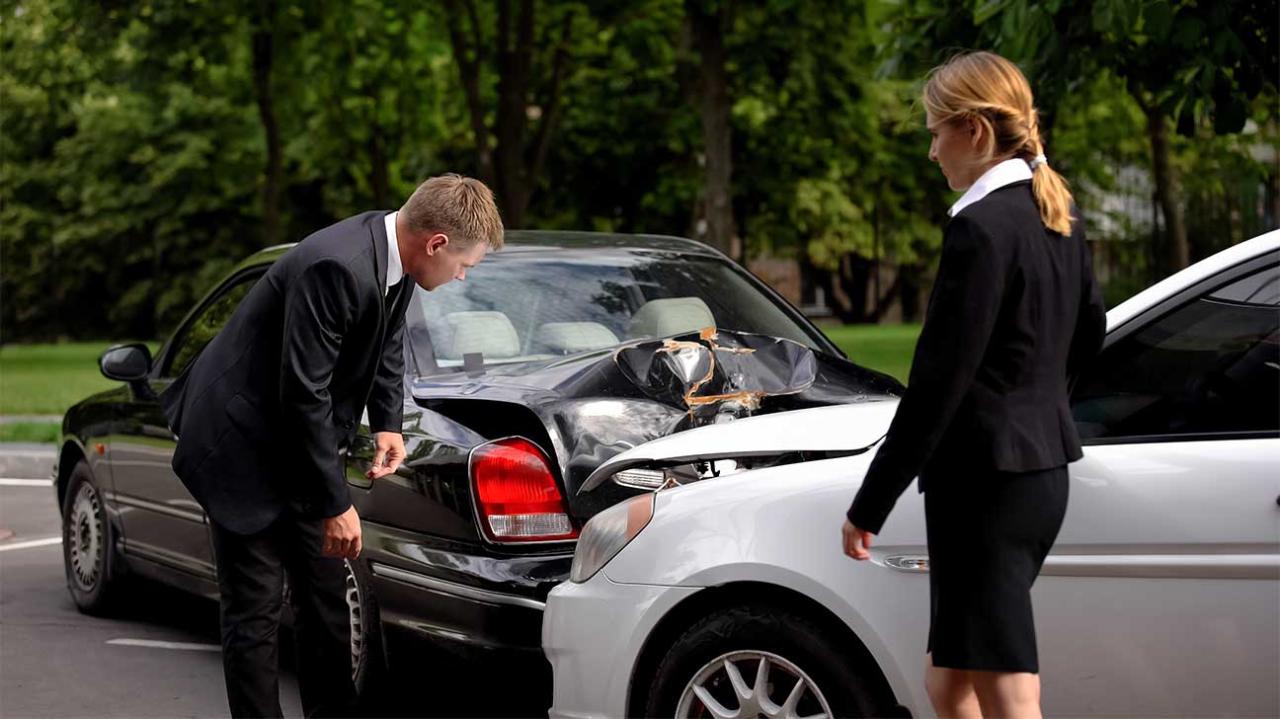Lawyer near me for car accident – Finding a lawyer near me for a car accident sets the stage for this enthralling narrative, offering readers a glimpse into a story that is rich in detail and brimming with originality from the outset. After a car accident, navigating the legal system can feel overwhelming, especially when dealing with insurance companies and potential injuries. A skilled car accident lawyer can be your advocate, ensuring your rights are protected and you receive the compensation you deserve.
This guide will delve into the complexities of car accident law, providing practical advice on finding the right lawyer, understanding your legal options, and maximizing your chances of a successful outcome.
Finding the Right Lawyer

After a car accident, navigating the legal complexities can be overwhelming. Seeking legal counsel is crucial to protect your rights and ensure you receive fair compensation. But with numerous lawyers available, finding the right one for your specific needs can be a challenge.
Factors to Consider When Choosing a Lawyer
Choosing the right lawyer is a critical step in your car accident case. Several factors should be carefully considered to ensure you have the best representation possible.
- Experience: A lawyer with extensive experience handling car accident cases is invaluable. They possess a deep understanding of the laws, procedures, and strategies involved, which can significantly impact the outcome of your case.
- Specialization: Look for a lawyer who specializes in personal injury law, particularly car accidents. This ensures they have specific expertise in this area, allowing them to provide targeted legal advice and strategies.
- Success Rate: A lawyer’s success rate in car accident cases is a strong indicator of their competence and effectiveness. A high success rate suggests they have a proven track record of achieving positive outcomes for their clients.
The Benefits of Consulting with Multiple Lawyers
While finding a lawyer with the right experience and specialization is essential, consulting with multiple lawyers before making a decision offers several benefits.
- Diverse Perspectives: Each lawyer brings a unique perspective and approach to car accident cases. Consulting with multiple lawyers allows you to gather different opinions and strategies, giving you a broader understanding of your options.
- Comparison of Fees: Lawyer fees can vary significantly. Consulting with multiple lawyers allows you to compare their fees and find the best value for your needs.
- Personal Compatibility: Building a strong attorney-client relationship is crucial for a successful outcome. Meeting with multiple lawyers allows you to assess their communication style, personality, and overall approach to ensure a good fit.
Initial Consultation and Case Evaluation
The initial consultation with a car accident lawyer is crucial for understanding your legal options and determining the best course of action. During this meeting, the lawyer will gather information about your accident, injuries, and potential losses. This information will be used to evaluate your case and determine its potential value.
Asking the Right Questions
It is important to ask questions during the initial consultation to ensure you understand the lawyer’s approach and their experience in handling car accident cases.
- Inquire about the lawyer’s experience in handling cases similar to yours, including the types of settlements or verdicts they have obtained.
- Ask about the lawyer’s fees and payment structure. Car accident lawyers typically work on a contingency fee basis, meaning they receive a percentage of any settlement or judgment obtained.
- Discuss the lawyer’s communication style and availability. Ensure you feel comfortable communicating with the lawyer and that they are responsive to your questions and concerns.
- Inquire about the lawyer’s strategy for handling your case, including their approach to negotiations and litigation.
- Ask about the lawyer’s knowledge of the applicable laws and regulations in your state.
Gathering and Preserving Evidence
Evidence is essential for proving your case and obtaining compensation for your losses. It is crucial to gather and preserve evidence as soon as possible after the accident.
- Obtain a copy of the police report, which will document the details of the accident, including the names of the drivers involved, the location of the accident, and any citations issued.
- Gather medical records, including any bills, receipts, and treatment notes. These documents will help demonstrate the extent of your injuries and the costs associated with your treatment.
- Take photographs of the accident scene, including the damage to your vehicle, the location of the accident, and any visible injuries. Photos can provide valuable visual evidence of the accident.
- Collect contact information for any witnesses to the accident. Witnesses can provide valuable firsthand accounts of the events leading up to the accident.
Assessing the Potential Value of a Car Accident Claim
The value of a car accident claim depends on several factors, including the severity of your injuries, the extent of your damages, and the applicable laws in your state.
- Economic damages include medical expenses, lost wages, and property damage. These damages are typically easier to quantify and prove.
- Non-economic damages, such as pain and suffering, emotional distress, and loss of enjoyment of life, are more difficult to quantify but can significantly impact the value of your claim.
The value of your claim can vary significantly depending on the specific circumstances of your case. It is important to discuss your case with an experienced car accident lawyer to obtain a realistic assessment of its potential value.
Filing a Lawsuit

If negotiations with the insurance company fail to reach a fair settlement, filing a lawsuit may be necessary to seek compensation for your injuries and damages. This involves a formal legal process where you, as the plaintiff, present your case to the court, seeking a judgment against the defendant (the responsible party).
Stages of a Lawsuit
The process of filing a lawsuit in a car accident case typically involves several stages:
Complaint and Summons
The lawsuit begins with the filing of a complaint, a formal document outlining the plaintiff’s claims against the defendant. This document details the accident, the injuries sustained, and the damages sought. Once filed, the court issues a summons, which formally notifies the defendant of the lawsuit and requires them to respond within a specified time frame.
Discovery
The discovery phase is crucial for gathering information and evidence from both parties. This process can involve:
- Interrogatories: Written questions sent to the opposing party, requiring them to provide answers under oath.
- Requests for Production: Demands for documents, photographs, and other relevant evidence related to the case.
- Depositions: Oral examinations of witnesses under oath, recorded by a court reporter.
Trial
If the case cannot be settled through negotiation or mediation, it will proceed to trial. The trial is a formal hearing where both parties present their evidence and arguments to a judge or jury. This stage typically involves:
- Opening Statements: Both sides present their case to the judge or jury, outlining the evidence they intend to present.
- Presentation of Evidence: Witnesses are called to testify, and physical evidence is presented to support the claims of each party.
- Closing Arguments: Both sides summarize their case and argue for a favorable outcome.
- Jury Deliberations: If a jury trial, the jury will deliberate and reach a verdict.
- Judgment: The judge or jury issues a final decision, which may include monetary damages or other remedies.
Preparing for Trial
Effective preparation is crucial for a successful trial. This includes:
- Witness Preparation: Witnesses should be thoroughly briefed on the case, their testimony, and potential questions they may be asked. This helps ensure consistent and credible testimony.
- Evidence Presentation: Evidence should be organized, labeled, and presented in a clear and persuasive manner. This can include photographs, medical records, police reports, and expert witness testimony.
Financial Considerations
A car accident can result in significant financial burdens, including medical bills, lost wages, and property damage. Understanding the types of financial compensation available and the factors that influence the amount awarded is crucial to protecting your financial well-being.
Types of Financial Compensation
The types of financial compensation available in a car accident case can vary depending on the circumstances and the state laws. Here are some common types:
- Medical Expenses: This includes all costs associated with treating your injuries, such as hospital stays, doctor visits, medication, physical therapy, and mental health care.
- Lost Wages: You can be compensated for income lost due to your injuries, including time off work and any future lost earnings if your injuries prevent you from returning to your previous job.
- Pain and Suffering: This category covers the physical and emotional pain, discomfort, and mental anguish caused by your injuries. It is often subjective and can be difficult to quantify.
- Property Damage: If your vehicle was damaged in the accident, you can seek compensation for repairs or replacement.
- Other Damages: Depending on the circumstances, you may be eligible for additional compensation for things like loss of consortium (loss of companionship from your spouse), wrongful death, or punitive damages if the other driver’s actions were reckless or intentional.
Factors Affecting Compensation Amount
Several factors can influence the amount of compensation you receive, including:
- Severity of Injuries: The more serious your injuries, the higher the compensation you may receive. For example, a broken bone will likely result in higher compensation than a minor sprain.
- Medical Expenses: The total amount of medical bills incurred directly reflects the severity of your injuries and can significantly impact your compensation.
- Lost Wages: The amount of income lost due to your injuries can also influence the compensation awarded.
- Pain and Suffering: This is subjective and can vary widely based on the individual’s experience and the impact of the injuries on their life.
- Liability: The extent to which the other driver is at fault for the accident will determine the amount of compensation you can receive. If you were partially at fault, your compensation may be reduced.
- Insurance Policies: The coverage limits of the insurance policies involved can affect the maximum amount of compensation available.
- State Laws: Each state has its own laws governing car accident claims, which can influence the types and amounts of compensation available.
Managing Finances After a Car Accident
Following a car accident, it’s crucial to manage your finances carefully:
- Keep Detailed Records: Track all your medical expenses, lost wages, and other accident-related costs. This documentation will be essential when negotiating a settlement or filing a lawsuit.
- Contact Your Insurance Company: Immediately report the accident to your insurance company and follow their instructions. Be sure to understand your coverage and policy limits.
- Seek Financial Assistance: If you are facing financial hardship, explore options like medical assistance programs, unemployment benefits, or financial aid from charities or government agencies.
- Consult with a Financial Advisor: Consider seeking advice from a financial advisor to help you manage your finances and plan for the future, especially if you are facing significant financial challenges.
Ethical Considerations: Lawyer Near Me For Car Accident

Car accident lawyers have a crucial responsibility to uphold ethical standards in their practice, ensuring that their clients’ interests are protected and that justice is served. Ethical considerations are paramount in this field, guiding lawyers in their conduct and decision-making.
Transparency and Communication
Transparency and open communication are fundamental principles in legal practice. Lawyers have an ethical obligation to be honest and upfront with their clients about all aspects of their case. This includes:
- Explaining legal procedures and options clearly and concisely.
- Providing regular updates on case progress and developments.
- Being truthful about potential risks and challenges.
- Disclosing any conflicts of interest that may arise.
Open communication fosters trust and allows clients to make informed decisions about their case.
Conflict Resolution
Ethical lawyers strive to resolve disputes fairly and effectively. This may involve:
- Negotiating settlements with the opposing party.
- Mediating disputes to reach a mutually agreeable solution.
- Representing clients in court proceedings, if necessary.
Lawyers must act in good faith and avoid using unethical tactics to gain an advantage.
Ethical Dilemmas in Car Accident Cases, Lawyer near me for car accident
Car accident cases can present unique ethical challenges for lawyers. Some examples include:
- Confidentiality: A client may disclose sensitive information, such as past driving offenses or medical conditions, which the lawyer must keep confidential. However, the lawyer may also be obligated to disclose this information if it is relevant to the case.
- Fees: Lawyers must be transparent about their fees and avoid charging excessive or unreasonable amounts.
- Conflicts of Interest: A lawyer may have a conflict of interest if they represent multiple clients in the same case, or if they have a personal relationship with a party involved in the case.
- Truthfulness: Lawyers have an ethical obligation to be truthful in their dealings with the court, opposing counsel, and their clients. However, they must also protect their clients’ interests and may need to present arguments that are not necessarily favorable to the other side.
Lawyers must carefully consider their ethical obligations and act in a way that is fair and just to all parties involved.
Conclusive Thoughts
Facing a car accident can be a stressful and confusing experience. Knowing your rights and having a qualified lawyer by your side can make a significant difference in the outcome of your case. By understanding the legal landscape, seeking professional advice, and taking proactive steps to protect your interests, you can navigate this challenging situation with confidence and achieve a favorable resolution. Remember, seeking legal counsel is not a sign of weakness, but rather a wise investment in your well-being and future.
If you’ve been in a car accident, finding a lawyer near you is crucial to protecting your rights. It’s also a good time to consider your future career path. If you’re interested in law, you might want to check out California State University: A Comprehensive Guide , which offers information on various legal programs across its campuses.
With the right legal guidance and a solid education, you can navigate the challenges of a car accident and build a successful career in law.